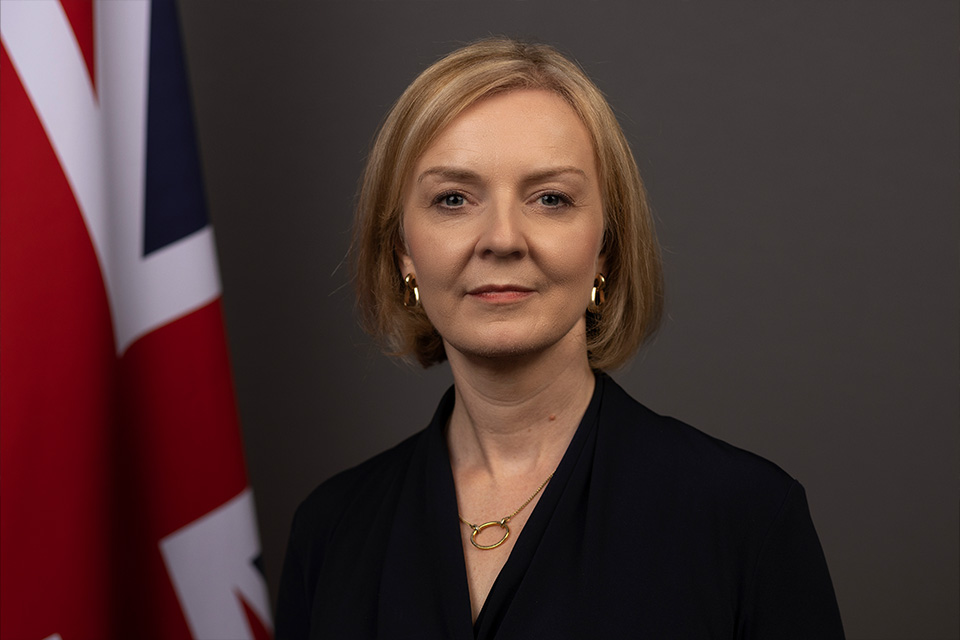Truss opening Statement at launch of UK Japan trade talks
The opening remarks from the Secretary of State, formally launching trade agreement negotiations between the UK and Japan.

It gives me great pleasure today, to open formal trade talks between two of the world’s largest economies; the United Kingdom and Japan, and to do this in partnership with my esteemed colleague His Excellency Toshimitsu Motegi.
Japan is already Britain’s close partner in every respect other than geography. We have a deep respect and mutual appreciation for each other’s culture and traditions.
Our shared history stretches back for hundreds of years. On 16 May this year, we commemorated the 400th anniversary of the death of William Adams, the Miura Anjin, the first Englishman in Japan. He was instrumental in the negotiation of the first UK-Japan Trade Agreement between Tokugawa Ieyasu and King James I, in 1613. He would have recognised a world threatened by plagues and buffeted by economic storms, albeit not one brought together through video conferencing.
I think he would be impressed to see how countries like Japan and the UK are coming together now, cooperating to keep markets flowing and trade open, and shaping the basis of the global economic recovery.
Japan is also the largest economy of the Comprehensive and Progressive Agreement for Trans-Pacific Partnership (CPTPP) and a natural leader of that organisation. CPTPP currently represents 13% of global GDP and would increase to more than 16% if the UK were to join. Our Free Trade Agreement with Japan will act as an important milestone towards the UK’s accession to CPTPP, a goal which Japan fully supports.
We embark on these trade talks today because both of our countries believe that the right response to the unprecedented economic challenge posed by coronavirus is to make international trade easier and fairer, not to retreat into protectionism and state domination of the economy.
It was the same unshakeable support for free trade which led Margaret Thatcher to take the UK-Japan relationship to a new level in the 1980s when she encouraged Japanese companies to invest here.
By the end of Mrs Thatcher’s time as Prime Minister, more than 150 Japanese companies had set up manufacturing operations here. They created employment opportunities in areas where traditional coal, steel and shipbuilding industries were in decline. From Sony in South Wales, to Nissan in the North East of England, to Mitsubishi Electric in Scotland, Japanese investments flourished, and helped the UK to do so too.
The agreement we will negotiate will build on the agreement and achievements of those times. It will see UK-Japan trade, already £30 billion annually, rise substantially in the years to come. It will benefit every region and nation of the UK. It is fitting to launch these talks in the same week that we announce our Future Tech Trade Strategy, since the UK, as a technology superpower, intends this agreement to set a new standard in the enabling of digital technologies and electronic commerce.
Of course, we must, as we have agreed, build on the existing EU-Japan agreement. But we are now free to so do more - for example for our world-leading services industries; for our highly innovative SMEs and for British consumers.
We both share a desire to have this agreement in force by the end of the Transition Period, if at all possible. So after commencing today our teams will move quickly to complete negotiations. Our common goal is for this agreement to serve as the cornerstone of an even stronger relationship between our two great island nations for many years to come.
Thank you